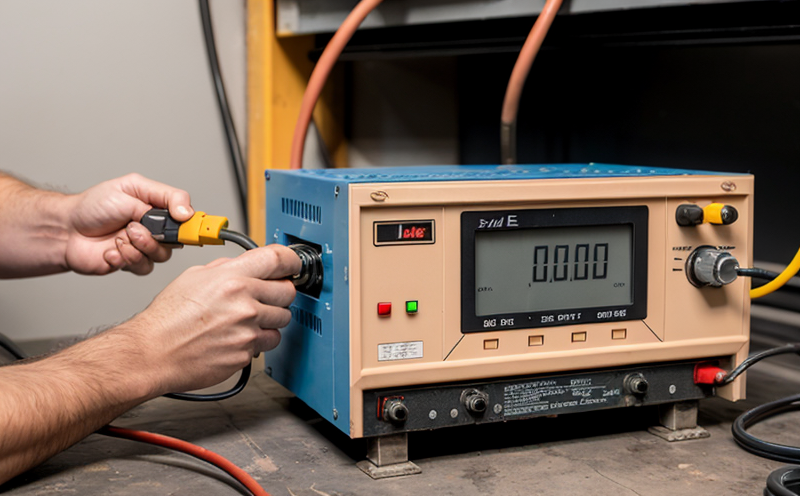ASTM F812 Die Bonding Strength Testing
The ASTM F812 standard specifies procedures and acceptance criteria to determine the die bonding strength in semiconductor devices. This test is crucial for ensuring that electrical connections between a semiconductor die and its package are robust enough to withstand mechanical stresses during assembly, transport, and use.
Die bonding involves attaching the semiconductor die to the lead frame or substrate of an integrated circuit using an adhesive. The integrity of this bond directly affects the reliability and performance of microchips in end products. ASTM F812 provides a standardized method to assess the mechanical strength of these bonds, ensuring that they meet quality standards set by industry leaders.
The test typically involves subjecting the bonded die to tensile stress along one or more axes until failure occurs. The force at which this happens is recorded and compared against specified limits defined in ASTM F812. Compliance with these limits ensures that the die bonding process adheres to best practices, enhancing product reliability.
In addition to ensuring mechanical integrity, ASTM F812 also considers environmental factors like temperature cycling, vibration, and thermal shock, which can impact bond durability over time. By incorporating these variables into testing protocols, this standard helps manufacturers identify potential weaknesses in their bonding processes early on, allowing for improvements before mass production.
Die-level electrical & functional tests following ASTM F812 are essential components of comprehensive quality assurance programs designed to prevent defects from reaching consumers. These tests not only verify the mechanical strength but also ensure that the bond provides adequate electrical conductivity and does not impede signal transmission.
Compliance with ASTM F812 is particularly important for companies operating in highly regulated industries such as automotive, aerospace, medical devices, and consumer electronics. In these sectors, even minor failures due to inadequate die bonding can lead to significant safety issues or performance degradation.
Industry Applications
- Automotive manufacturers who rely on semiconductor technology for engine control units and powertrain management systems.
- Aerospace companies using microchips in avionics and satellite electronics where reliability is paramount.
- Medical device firms incorporating advanced processors into life-saving equipment like pacemakers and imaging devices.
- Consumer electronics producers who need to ensure their products meet strict durability standards imposed by international regulations.
Eurolab Advantages
At Eurolab, we pride ourselves on delivering top-tier ASTM F812 testing services tailored to the semiconductor and microchip industries. Our state-of-the-art facilities are equipped with advanced equipment capable of simulating real-world conditions that stress die bonds.
- We employ highly skilled technicians who possess extensive experience in performing ASTM F812 tests according to international standards.
- Our laboratories adhere strictly to ISO/IEC 17025 accreditation requirements, ensuring the highest level of accuracy and reliability in our results.
- We offer quick turnaround times without compromising on quality, allowing you to receive timely feedback for your development processes.
Why Choose This Test
Selecting ASTM F812 die bonding strength testing ensures that your microchips achieve peak performance and longevity. Here’s why:
- Enhanced Reliability: By identifying weak points early, you can improve manufacturing processes.
- Safety Compliance: Ensures adherence to regulatory requirements in sectors like automotive, aerospace, medical devices, and consumer electronics.
- Cost Efficiency: Early detection of issues prevents costly rework or product recalls later down the line.
- Innovation Support: Identifies areas for improvement that can drive innovation within your organization.





